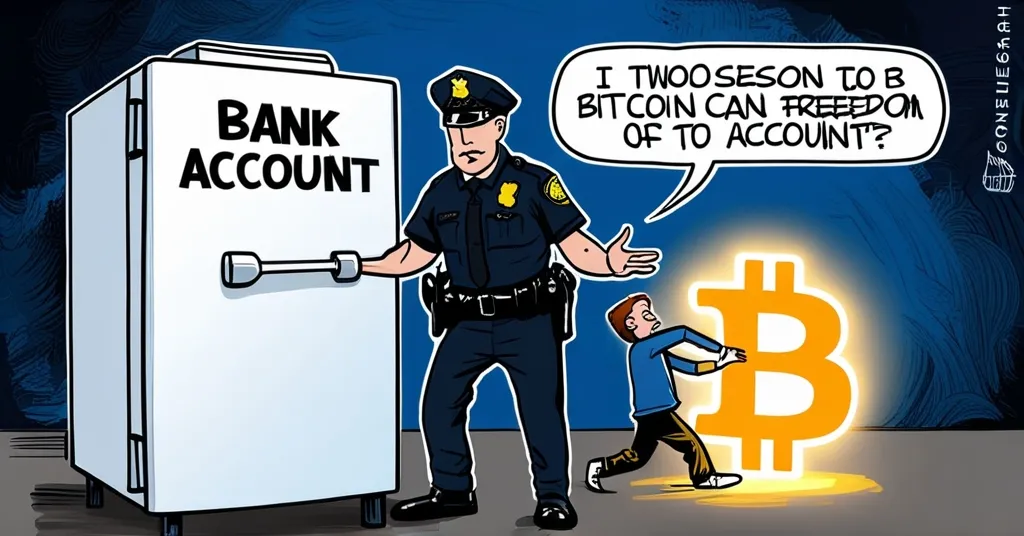Singapore’s New Law Grants Police Power to Freeze Bank Accounts for Up to 180 Days in Anti-Scam Push

Police Gain New Powers to Freeze Bank Accounts in Singapore’s Fight Against Scammers
In the first half of 2024, Singapore witnessed a staggering 26,587 scam cases, prompting the country to take decisive action with the “Protection from Scams” bill. Here’s the deal: this new law grants police the authority to freeze bank accounts suspected of scam involvement, sparking both praise and concern among the public.
- Singapore passes “Protection from Scams” bill
- Police can freeze bank accounts up to 30 days, extendable to 180 days
- Unanimous parliamentary support despite privacy worries
Singapore’s Parliament unanimously passed the “Protection from Scams” bill, enabling police to freeze bank accounts linked to scams. This legislation allows the suspension of money transfers, ATM use, and credit facilities for an initial period of 30 days, with the possibility of extending this freeze up to five times, totaling a potential 180 days. While individuals can still access their money for daily living expenses, the broad scope of these powers raises significant questions about privacy and control over one’s money.
The urgency of this bill is underscored by the sheer volume of scams in Singapore. In the first half of 2024 alone, the country reported 26,587 cases, resulting in losses of S$385.6 million. Minister of State for Home Affairs Sun Xueling emphasized the need for swift action to protect victims and minimize financial losses, which often involve life savings.
“These restriction orders will suspend money transfers, the use of ATM facilities and all credit facilities, although individuals will still be provided access to their monies for daily living expenses.”
The bill initially applies to Singapore’s seven major retail banks—OCBC, DBS, UOB, Maybank, Standard Chartered, Citibank, and HSBC. However, there’s a twist: the Ministry of Home Affairs indicated a potential future expansion to other financial institutions, including cryptocurrency exchanges, remittance companies, and e-wallet providers, if scammers shift their tactics. This could inadvertently push more people towards cryptocurrencies, which operate on decentralized systems and offer greater privacy and control over one’s finances.
Cryptocurrencies like Bitcoin operate on decentralized systems, meaning they are not controlled by any single entity. This can offer greater privacy and control over one’s finances, making them an attractive alternative to traditional banking systems, especially in the face of such stringent regulations.
The tension between enhancing security measures and protecting individual rights is palpable. While the bill aims to combat scams, it also serves as a stark reminder of the broader implications for privacy and financial autonomy in the digital age. The Singapore Police Force (SPF) and the Cyber Security Agency of Singapore (CSA) have provided guidelines to protect cryptocurrency users from scams, recommending the use of secure wallets, strong passwords, and staying informed about emerging threats.
Here’s where the rubber meets the road: while the government’s intent to protect its citizens from financial fraud is commendable, this bill gives the police the power to put your bank account on ice for up to six months—yikes! For those in the cryptocurrency community, this development may highlight the importance of decentralized financial systems like Bitcoin, which offer an alternative to traditional banking and greater control over one’s financial privacy. Public discussions on platforms like Reddit reflect a mix of reactions to these new measures.
Key Takeaways and Questions
-
What does the “Protection from Scams” bill allow police to do in Singapore?
The “Protection from Scams” bill allows police in Singapore to freeze bank accounts suspected of being involved in scams, suspending transactions, ATM use, and credit facilities for up to 30 days, with possible renewals up to five times.
-
How long can bank accounts be frozen under this new law?
Bank accounts can be frozen for up to 30 days, with the possibility of renewal up to five times, allowing for a total possible suspension of up to 180 days.
-
What are the concerns associated with this new law in Singapore?
Concerns include potential infringement on personal freedoms and operational challenges, as the law allows significant governmental control over individual financial activities. Expert analysis suggests these measures could have broader implications.
-
Which financial institutions are affected by the “Protection from Scams” bill?
The law primarily applies to major banks, but it can be extended to other financial institutions if deemed necessary.
-
Why did Singapore’s Parliament unanimously support the “Protection from Scams” bill?
Despite concerns, the unanimous support reflects a strong consensus on the need to combat scams and protect citizens from financial fraud, prioritizing security over potential risks to personal freedoms. For more detailed information, you can refer to the wiki on related legislation.
As Singapore navigates the delicate balance between security and freedom, the cryptocurrency community watches closely. The global rise of scams pushes governments to act, but it also underscores the value of decentralized systems in protecting personal financial autonomy. Whether this new law will drive more Singaporeans towards cryptocurrencies, or if it will simply be another tool in the fight against fraud, remains to be seen. One thing is clear: the conversation about privacy, security, and financial freedom is far from over. Discussions on platforms like Quora further explore the potential impact on cryptocurrencies.



